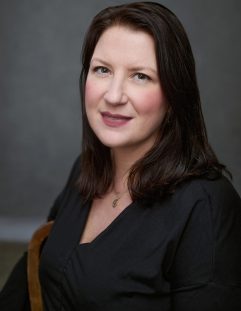Welcome to
Lunn Therapy
Let’s talk about it…
My name is Suzanne Lunn and I am a Psychosexual and Relationship Therapist, registered with the College of Sexual and Relationship Therapists (COSRT) - the UK’s only professional standards body dedicated to these specialised disciplines. I have a post-graduate diploma in clinical sexology and relationship therapy, and a foundation certificate in counselling skills and practice, from the Contemporary Institute for Clinical Sexology (CICS). I also have a Bachelor of Arts degree in English and American Literature (University of Warwick) and an Executive Masters degree in Public Policy (London School of Economics).

I spent more than 20 years working in education and social care policy and public sector leadership, management and coaching - including as a Senior Civil Servant - before training as a specialist psychotherapist. I have extensive experience working with senior politicians, managers and business leaders and understand the pressures of high profile and demanding jobs on individuals and their relationships. I have also worked as a psychosexual therapist for the charity, Controlling Chemsex, and for the South West London Sexual Health service (NHS) before moving into private practice.
My approach
It can be difficult for many people to improve their relationships and their sexual lives because so often these issues are deeply personal, private and hard to talk about. In my experience, bringing light and air to what can feel like your deepest, darkest secrets is a significant step towards better mental health and wellbeing. I offer a confidential, warm, empathic and non-judgemental space to explore your problems and help you work towards feeling happier. I enjoy working with people from all backgrounds and orientations and identify as a heterosexual woman who practises in a sex positive, LGBTQ+ affirmative and kink-friendly way.
I work with adult individuals in one-to-one therapy and with intimate partners in couples therapy.
How I work

I am trained in a pluralistic approach to talking therapy and am able to use a range of therapeutic tools and techniques that work best for you.

I employ a bio-psycho-social framework for the treatment of sexual and relational problems. This means that we will discuss what is happening for you physically in your body, how your mind and thoughts are contributing to your experiences and what influence society, community and family experiences have on you.

I draw on psychodynamic, CBT, mindfulness, attachment and trauma-informed psychological theories and practices to help you achieve your goals - tailoring to your needs, preferences and whether you are seeking short or long term therapy.
The issues I can help with include:
Relationship problems such as: loneliness; communication difficulties; dating challenges; loss of intimacy; recovery from infidelity
Contemplating and navigating separation or divorce
Negotiating non-monogamy/open relationships
Inability to orgasm
Painful vaginal or anal intercourse and penetration problems
Sexuality, gender, erotic and relationship concerns including specific sexual interests (BDSM, kinks and fetishes)
Compulsive sexual or romantic behaviours (sometimes
known as “sex addiction” or “love addiction”)
Problematic use of pornography
Low sexual desire
Low self-esteem, anxiety and body image issues
Recovery from sexual trauma, assault and non-current childhood sexual abuse
Erection problems and premature or delayed ejaculation
Recovery from chemsex and building confidence in sober sex
What my clients say...
My location
I am London based and offer online therapy sessions using Zoom to clients based in London and more widely across the UK and internationally.
I also offer face-to-face sessions in the beautiful Eaton Gate practice rooms in Belgravia, London. This elegant period building is located moments from Sloane Square and close to Victoria train station.
Fees & availability
Therapy sessions last for 50 minutes and usually take place on a weekly basis. Fees start from £80 per session for individuals, or from £100 for couples. I offer a limited number of reduced fee places at off-peak times for students; those on a low income, or in financial difficulty – please contact me to discuss. Fees are payable by bank transfer only. Sessions that are cancelled within 48 hours will be charged.
Get in touch
Feel free to contact me if you have any questions about how I work, or to arrange an appointment. This enables us to discuss the reasons you are thinking of coming to therapy, whether it could be helpful for you and whether I am the right therapist to help.
You can also call me on 07873 855680 if you would prefer to leave a message or speak to me first. I am happy to discuss any queries or questions you may have prior to arranging an initial appointment.
All enquires are usually answered within 24 hours, and all contact is strictly confidential and uses secure phone and email services. If you do not receive an email response from me then please check your spam/junk folders as emails sometimes go there initially.
Frequently asked questions
Psychosexual therapy is a specialist form of psychotherapy that is sometimes known as ‘sex therapy’ or ‘clinical sexology’. It is a form of talking therapy that focuses particularly on the most intimate thoughts, feelings and experiences people have and helps them to address their problems in this area. No sexual acts, touching or nudity take place in the therapy room or with the therapist. Clients will often be given homework or tasks to do in the privacy of their own homes, sometimes with their intimate partners, and then invited to discuss that experience with the therapist as part of their treatment.
Most counsellors and psychotherapists will have some particular areas of expertise and experience that they offer. General therapists tend to work with problems such as depression, anxiety, addiction, grief, work stress, family issues and certain forms of mental illness. Psychosexual therapists can also work with general issues but would usually prioritise working with sexual and relationship problems.
Some general therapists and psychosexual therapists will also be qualified relationship therapists and be able to provide couples therapy or ‘intimate partner therapy’ which involves discussing sexual and other types of relationship problems with more than one client at a time.
Pluralism was developed by Mick Cooper and John McLeod in 2006 from the principle that all therapeutic approaches offered useful insights into how to help people and that a more flexible approach to therapy that suited the needs of individual clients was required. There are increasingly more psychotherapists who are working in a pluralistic or integrative way, rather than just following the more rigid historical ‘schools’ of psychological theory – which are broadly Psychoanalytic/Psychodynamic (grounded in Freudian teachings on the unconscious and past); cognitive-behavioural (focused on changing current ‘faulty’ thoughts and behaviour patterns); and humanistic (based on encouraging self-acceptance, confidence and personal fulfilment).
Pluralism is particularly well suited to sex and relationship therapy. Some clients respond very well to Cognitive Behavioural Therapy (CBT) and mindfulness techniques to address anxiety and sexual function issues, for example. For others, a more psychodynamic approach to working through childhood experiences, traumas, and relationships is a larger area of focus. I also believe that a humanistic approach to therapy, working in a strengths-based and collaborative way, is critical in helping clients to reach their therapeutic goals.
Ultimately, the relationship with your therapist is the most critical factor to facilitate change so it is important that you choose someone who you feel you can work well with and who will provide you with the support, challenge and care you are seeking.
There is no ideal length of time for therapy; it varies from person to person and will often depend on the depth and nature of the issues they are facing. While I can work on an open-ended basis with clients, it is helpful for us to agree a certain number of sessions and review progress and goals once we reach that point. I would suggest a minimum of six sessions for short-term therapy, in order to feel some benefit, although you are free to stop at any time if you wish.
Some people find that after a few sessions they have some clarity and direction and are ready to end therapy and continue their self-development journey alone. For others, therapy is a long-term investment in their mental and emotional health and they will continue with it for many months or years.
I aim to respond to enquiries within 48 hours. Appointment availability will depend on how flexible your diary is and whether you are seeking online or in-person therapy. If my practice is full and I am unable to see you at this time then I will offer you a space on the waiting list or suggest onward referral options. Please note that I do not offer an emergency or out-of-hours service. You can contact the Samaritans for urgent support at any time on 116 123 (https://www.samaritans.org)
Confidentiality is one of the main ways in which therapy differs from many other forms of help. Talking to friends or family can rarely offer the same degree of confidentiality as talking to a professional. Because of this, you will find that - as you get used to having therapy - you are more free to talk about whatever you wish.
There are some situations where the law requires disclosure (e.g. certain criminal acts). Like most other therapists, there are also some situations where I may not be able to keep total confidentiality. In particular, if someone tells me that they are thinking of harming themselves or others in a way that I believe creates a serious risk to life. However, breaking confidentiality is rare, and only happens after talking to the person concerned.
© Suzanne Lunn
powered by WebHealer

